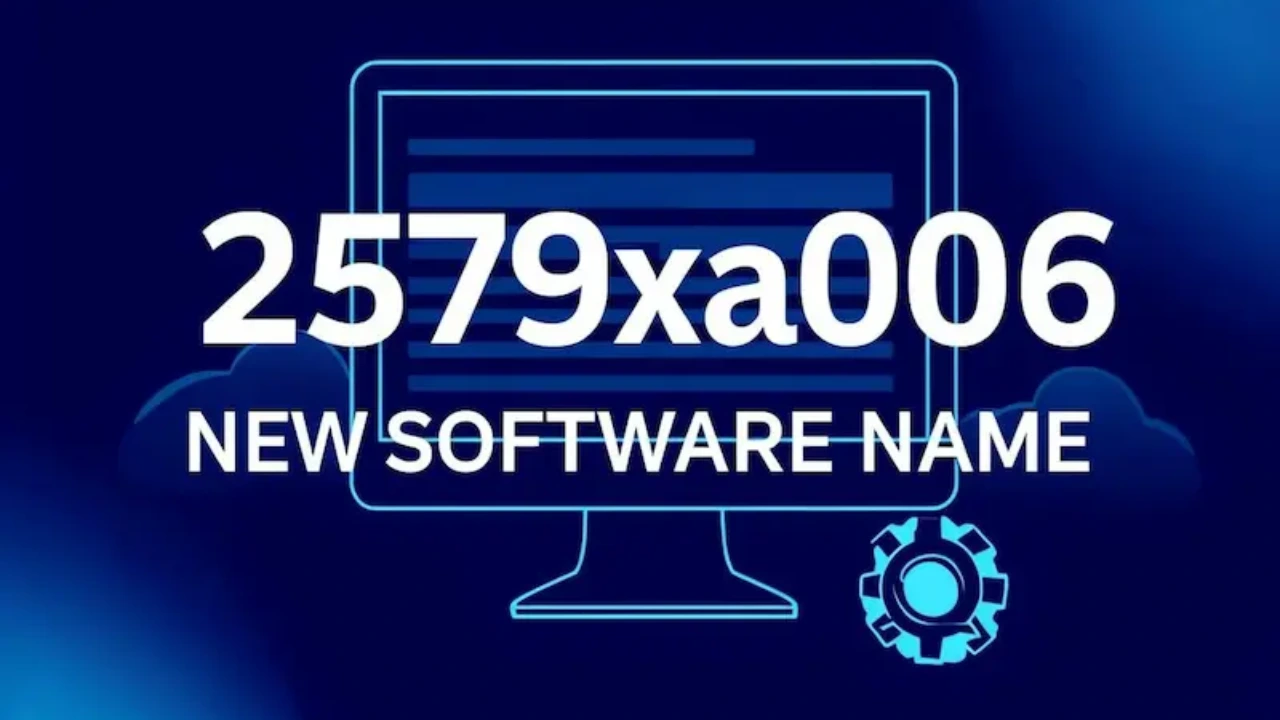The 2579xao6 code bug is one of those technical errors that surprises developers and system administrators alike. It often appears during execution, leading to unexpected crashes, frozen screens, or repetitive error loops. Understanding what it is and how to deal with it can prevent downtime and protect system stability.
What is the 2579xao6 Code Bug?
The 2579xao6 code bug is not a standard error listed in common operating systems or development frameworks. Instead, it is reported across different environments, usually linked with runtime failures or system incompatibility. You can explore similar technical challenges by checking Clearskinstudy Emails Addresses. Because of this, it is considered a rare but critical bug that needs attention when it occurs.
Why Does It Happen?
Errors like the 2579xao6 code often trace back to a mix of hardware and software inconsistencies. They may arise from memory corruption, outdated libraries, or even driver mismatches in complex environments.
Sometimes, faulty updates or corrupted files can also trigger this persistent error.
Common Symptoms

Systems affected by the 2579xao6 code display consistent signs that are difficult to ignore.
Applications may crash instantly, and users may find themselves stuck in error loops with no clear exit path.
These crashes reduce productivity and create frustration, especially in business-critical settings.
| Symptom | Description |
|---|---|
| Sudden Crashes | Applications stop without warning, often during execution. |
| Error Loops | The system re-displays the error repeatedly after reboot or restart. |
| Slow Response | System resources get locked, reducing performance. |
| Compatibility Failures | Programs stop working after updates or environment changes. |
How to Detect the Bug?
Detecting the 2579xao6 code requires a mix of careful observation and technical checks.
Most users identify it through error logs, which usually show repeating error codes and crash timestamps. Advanced developers can also run debugging tools or performance monitors to catch root causes.
Technical Causes
The 2579xao6 code bug is associated with different technical triggers depending on the system setup. For some, insufficient memory or processor overload pushes the system into failure. others, software mismatches or outdated modules spark the bug into action.
| Technical Cause | Impact on System |
|---|---|
| Memory Corruption | Creates crashes during execution |
| Library Conflict | Applications fail to start properly |
| Driver Issues | Hardware and software miscommunication |
| Resource Exhaustion | Slows down performance and freezes programs |
Solutions to Fix the 2579xao6 Bug
Fixing the 2579xao6 code bug requires structured troubleshooting instead of random guessing. Developers should first check for updates across the operating system and installed software. If the issue persists, reinstalling libraries, drivers, or restoring backup files may help.
One reliable step is to isolate the problem by recreating it in a controlled environment.
By narrowing down the exact triggers, it becomes easier to apply targeted fixes.
In some cases, sandboxing applications or using containers can prevent the bug from spreading system-wide.
Possible Fixes / Mitigations
Depending on what you find, some solutions might include:
- Updating all software/libraries to compatible versions.
- Ensuring enough system resources (memory, disk, CPU) are available.
- Reinstalling any corrupted components.
- Adding input validation/sanitization if bad input is causing failures.
- Running on a supported configuration (e.g. matching OS, drivers).
- If configuration or environment mismatch, align or containerize (using virtualization or container tech) to enforce consistency.
- Adding error handling around the module/part that fails (so it fails gracefully rather than crash).
- If this is reproducible only under certain OS/driver/hardware versions, document it and, if possible, enforce version checking or provide fallback behavior.
Preventive Measures
Preventing the 2579xao6 bug is always easier than dealing with it after a crash.
Regular system updates and backups reduce the chances of such errors appearing in production.
Developers should also run stress tests and compatibility checks before rolling out software updates.
| Preventive Step | Benefit |
|---|---|
| Keep Software Updated | Reduces risk of known bugs |
| Backup Critical Data | Ensures recovery after crashes |
| Monitor Resource Usage | Detects overload before failure |
| Test Before Deployment | Catches conflicts in advance |
Impact on Businesses
For businesses, the 2579xao6 code bug can mean more than just temporary disruption. It may cause downtime in servers, reduced trust from customers, and financial loss due to halted operations. Because of these risks, IT teams must treat this bug as a high-priority concern, as highlighted in similar discussions like Cyrus Nikou.
Real-World Cases
Reports of the 2579xao6 code vary, but they share common ground in terms of disruption.
In one scenario, an enterprise application failed during a crucial reporting process, leading to missed deadlines. In another, a small business lost access to customer records until backups restored system integrity.
These examples show how unpredictable bugs can disrupt operations if preventive steps are not taken early.
Steps for Developers
Developers must remain proactive in handling rare issues like the 2579xao6 code bug.
They should create detailed logs, use debugging tools, and collaborate with system admins to find solutions.
By sharing their findings within tech communities, they also help others facing similar bugs.
Future Outlook
The 2579xao6 code bug highlights how digital environments remain vulnerable to unpredictable errors. As systems grow more complex, unexpected runtime issues will continue to challenge developers.
With stronger diagnostic tools and better collaboration, these bugs will become easier to manage.
Conclusion
The 2579xao6 code bug may not be widely documented, but it creates serious problems when it appears. By learning its causes, symptoms, and solutions, both users and developers can stay prepared.
With regular updates, testing, and backups, the chances of this bug disrupting daily life are greatly reduced.

